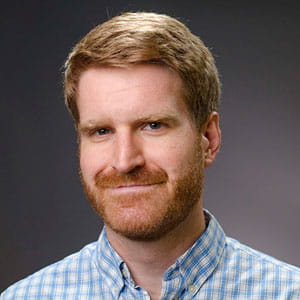What Does the West Philadelphia Promise Zone Mean for Drexel? A Q&A With Lucy Kerman

- Early-Career Hiring Remains Active but Increasingly Selective, According to Drexel’s 2026 College Hiring Outlook
- Drexel University's Recent Academic Activity: Sponsored Opportunities and New Partnerships From Fall 2025
- Faculty Highlights: Recent Awards and Grants from Fall 2025
- Dragons on Fire: Kudos for Student Achievement: Fall 2025

When the White House named an area of West Philadelphia surrounding Drexel as one of the nation’s first five Promise Zones, it provided some hope for a cluster of neighborhoods that has struggled with poverty. But because the program is so new, the announcement also prompted some questions.
What does being a Promise Zone mean for the area? Why and how is Drexel a part of the designation? DrexelNow talked with Lucy Kerman, vice provost for University and Community Partnerships, about those questions and more.
First of all, what is a Promise Zone?
It’s a way that the federal government has aligned the federal agencies to work on addressing poverty. In this case, it’s a designation that recognizes the great collaborations and partnerships that a number of nonprofits, along with Drexel, have been involved with for the last several years. The work is focused on an area of West Philadelphia that includes the neighborhoods of Mantua and West Powelton, as well as Powelton Village and Belmont.
The area has a poverty rate of about 51 percent, and there are portions that have poverty rates of more than 80 percent. But it also has the potential for enormous investment. It’s that mix of great need but also hope for the future that makes it a great fit for a Promise Zone. Drexel assisted with the proposal, and the application required plans in four areas: education, public safety, housing and economic opportunity. We have working groups associated with each of those areas, and a fifth group focusing on health and wellness.
What does the designation mean for these neighborhoods and for Drexel?
First of all, the Promise Zone carries no funding with it. But it does align with federal agencies that can provide assistance in the future. The Promise Zone will get special consideration for grant opportunities coming down the pike, and we are starting to see some of these opportunities. And there’s the possibility that, if Congress passes associated legislation, there could be tax credits tied to local hiring and certain capital investments in the Promise Zone.
As for Drexel’s role: We are really actively involved in all the working groups. We’re leading the education group, along with the School District of Philadelphia, but there are faculty and professional staff on all the committees. And we’re really interested in lending the expertise of our faculty, as well as our institutional energy, to ensuring the success of the Promise Zone. It’s a 10-year designation, so we’ve got a long way to go.
How can faculty get involved?
If faculty have research interests in any of the five areas we’re focusing on, we would welcome their direct involvement. But we also think that faculty may be able to use the Promise Zone designation to support their own research grants that they might submit to federal agencies. We think it’s a great opportunity for faculty whose research interests bring them into the Promise Zone to be able to leverage and build on that research. The community is hard at work addressing its challenges and problems, and being able to combine residents with our faculty to find science-based, successful solutions is one of the best ways that a university can partner with the community.
Why was Drexel interested in taking this role in the Promise Zone?
It’s clearly in our best interest to be in a neighborhood that is strong and safe. It is a place where students live, and where many of our faculty and staff are beginning to live. We as a community are better off when the entire neighborhood is stronger and safer. As a university that sees itself as training tomorrow’s leaders, giving students the opportunity to be on the ground doing real work is part of the educational mission. But we are also committed because of our mission to solve problems. It’s what universities do best, and it’s a fundamental part of Drexel’s mission and history. It’s the right thing to do.
John Fry talks about being the most civically engaged university in the nation. And part of that engagement happens in our own backyard.
What could be the ultimate result for these neighborhoods, and for Drexel?
We want to see a safer neighborhood for everybody. We want to see a neighborhood with better schools so children have better educational options. We want to see a neighborhood with lively retail, so that you can go out to eat and get your dry cleaning done in your neighborhood, and your neighbors will be working in those stores. We would like to see houses standing in good shape, rather than falling down and deteriorating. We would like to see a livable, walkable neighborhood, with green spaces where people can walk around and be safe.
It’s critically important to us that these changes support existing residents, and that we do not solve the problems of crime and poverty by simply moving people out. It’s our commitment to be partners with long-time neighbors in supporting this neighborhood, so they can benefit from a safer, greener, more livable community.
In This Article
Drexel News is produced by
University Marketing and Communications.
